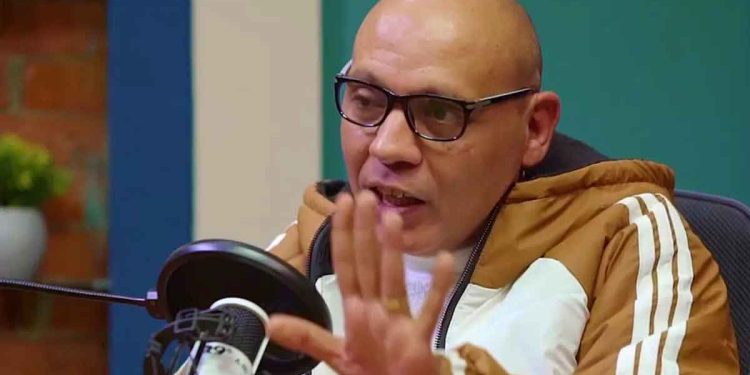Coptic researcher Hany Sobhy appeared before the Supreme State Security Prosecution in Fifth Settlement, east of Cairo, following two days of enforced disappearance in an undisclosed location. He had been arrested from his home in the working-class district of El-Marg without a judicial warrant, shortly after posting a satirical comment on his Facebook page that was interpreted as criticism of President Abdel Fattah al-Sisi.
The prosecution questioned Sobhy in connection with Case No. 7143 of 2025 (Supreme State Security) and charged him with two offences: joining a terrorist organisation (the Muslim Brotherhood) and spreading false news and information. He has been placed in pre-trial detention for 15 days pending investigation.
Sobhy is a young researcher and novelist. His short story collection Ruh al-Ruh (Soul of the Soul), published in late 2024, touched on themes related to the Israeli war on Gaza and raised profound human questions about memory, identity, and resistance. He is also known for his debut novel Over Coffee in Shubra (2020), which depicted the rich social and cultural diversity of that historic Cairo district.
His arrest forms part of a broader campaign of repression targeting writers, bloggers, and researchers, who increasingly face the stark choice between silence and imprisonment. In recent years, authorities have routinely employed charges such as “membership in a terrorist organisation” and “spreading false news” as blanket accusations to stifle dissent, satire, and independent thought.
The manner of Sobhy’s detention constitutes a flagrant violation of Egypt’s own constitution, which guarantees freedom of expression, scientific research, and artistic creativity. It also breaches Egypt’s obligations under international law—particularly the International Covenant on Civil and Political Rights, which prohibits arbitrary detention and protects the right to freedom of opinion. The raid on his home without a warrant further contravenes Egypt’s Code of Criminal Procedure.
This incident is particularly alarming in light of ongoing concerns raised by the United Nations High Commissioner for Human Rights regarding Egypt’s systematic use of enforced disappearance, torture, and the abuse of counterterrorism laws to silence human rights defenders, journalists, and lawyers. Despite limited releases in recent months, these practices continue unabated.
The imprisonment of Hany Sobhy is yet another example of the security apparatus’s encroachment on freedom of thought and expression, and of how the judiciary is being used as a tool for political and ideological retaliation. Today, any researcher or writer who dares to criticise authority, even through satire, risks being labelled a terrorist, in stark contradiction to the principles of justice and the rule of law.
Such repression not only threatens individual liberties but strikes at the heart of society’s collective right to think, critique, and evolve. In a country where a writer can be jailed for a single satirical sentence, the real threat is not the so-called terrorism, but the state’s own orchestrated campaign of intellectual terror aimed at silencing awareness and criminalising thought.


























